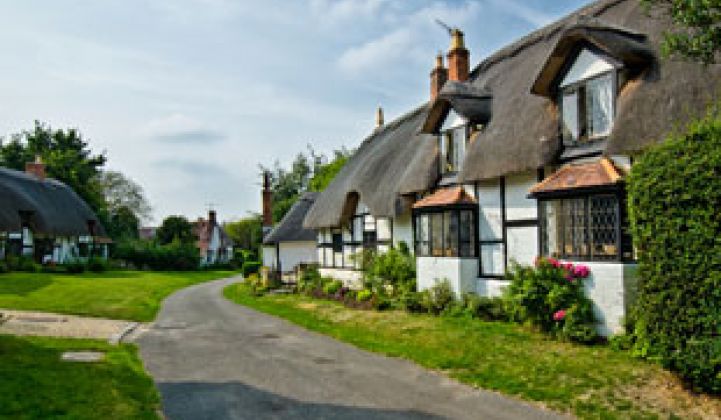The United Kingdom’s Department of Energy and Climate Change says it will make revisions to its Green Deal program, which has not had as much uptake in its first year as expected.
The DECC announced on Monday that it will make the Green Deal easier for consumers and the companies that operate in the market. The program is intended to help homeowners and businesses with energy efficiency improvements up to £10,000 ($16,500) with no upfront costs.
Despite the promise of money, which is paid back on utility bills over long period of times, only a small handful of the roughly 71,000 audited homes have moved forward with loans. There are about 13,000 homes per month entering the process.
One of the problems is that setting up the financing company that will dish out loans has taken longer than expected, according to The Guardian. Greg Barker, a minister at the DECC, told The Guardian that 80 percent of the households receiving assessments are planning on carrying out at least one energy efficiency improvement.
The improvements will introduce an online tool that will give consumers straightforward advice on how to take energy-efficient steps in their household. The DECC will also improve the reports households are given to be clearer about what the audit means and how the government can help make improvements. The government will also improve its website to point consumers to the companies that can provide the services that are needed.
Companies that are approved as part of the Green Deal, which is mostly about improving the building envelope of Britain’s old housing stock, are also receiving some boosts. The DECC will open up its Energy Performance Certificate data so companies can identify properties that would benefit most from upgrades.
The government is also expanding what’s included in the Green Deal, while also working on ways to reduce the cost of insurance requirements attached to Green Deal projects.
The scale of the public-private program, the equivalent of $21.5 billion over a decade, had many in the energy efficiency industry salivating when it was announced. The utilities collect the money, but it is a consortium of banks that are putting up the money with the assumption that they will receive a steady payback through the Green Deal.
But the program proves what many in the industry know: it is not necessarily readily available capital that limits home energy-efficiency retrofits.
Many of the efforts to streamline the program revolve around making upgrades easier. One improvement will be streamlining the assessments, work and inspections. The Green Deal has also found that many people want to do an online assessment and then move straight to an installation.
Many utilities in the U.S. have found that despite residential energy efficiency programs, the individual consumer tends to be fickle. Many don’t care much about the utility bill, but they do care about comfort. As winter rolls into Britain, many supporters of the Green Deal hope that colder months will boost interest in weatherizing homes. The DECC is also trying to find ways to entice multifamily buildings to take advantage of Green Deal, a segment that has historically been difficult for utilities to tackle in terms of improving energy efficiency.
Some analysts in the U.K. are skeptical that the Green Deal will take off, even with the changes.
"The demand forecasts [for the Green Deal] had been hopelessly optimistic," Ben Warren, environmental finance leader at consultants Ernst & Young, told The Guardian. "This is down to the complexity of the scheme, but also the cost of borrowing."
If the complexities can be minimized and the program can take off, however, it could provide important lessons for other on-bill financing programs and public-private partnerships designed to unlock energy efficiency across the long tail of small business and residential building stock.



